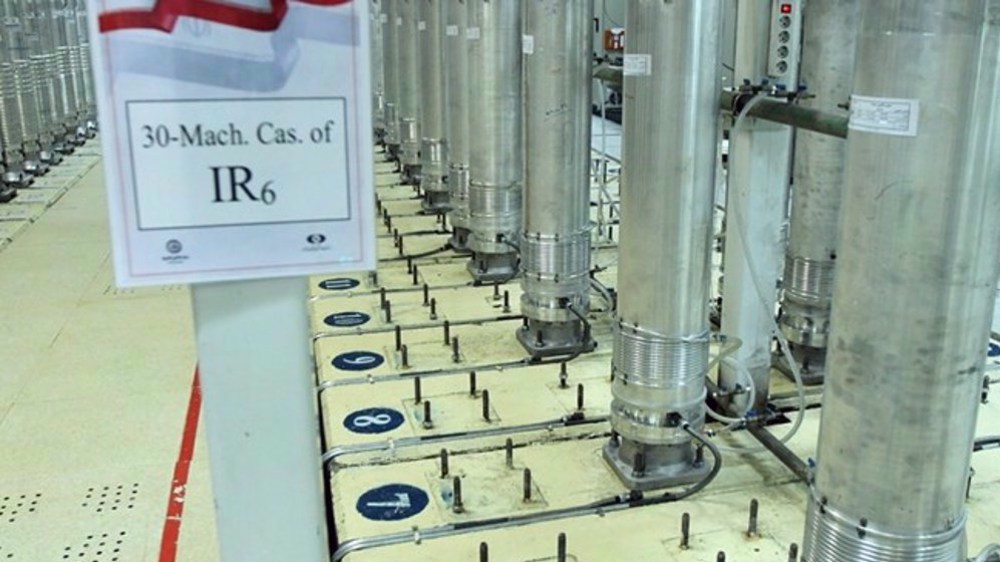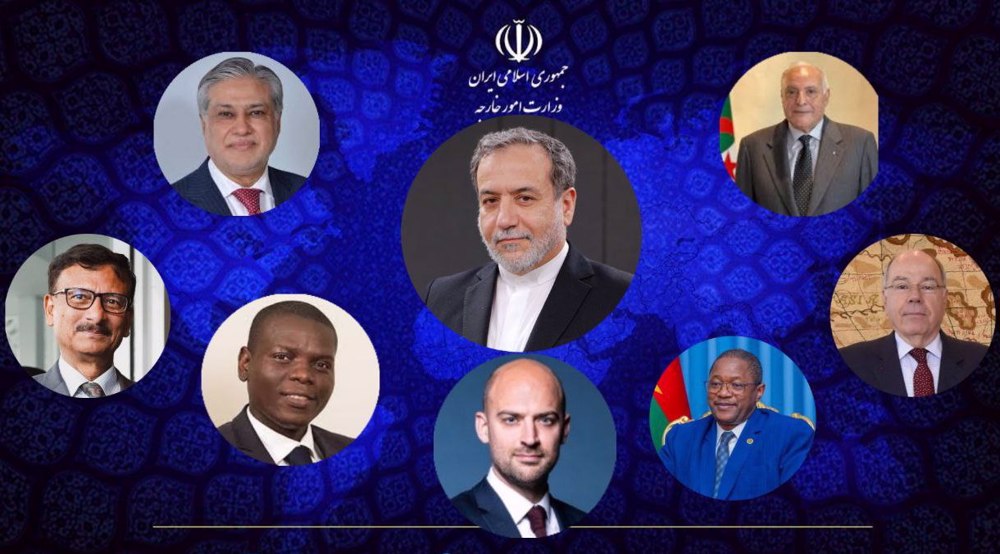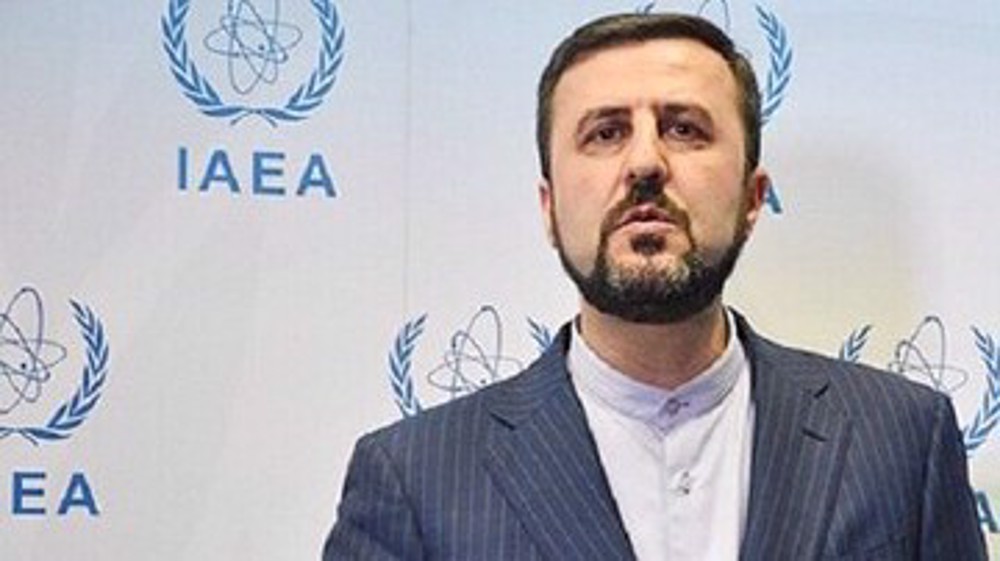Britain, Germany renew commitment to JCPOA
Britain and Germany have reiterated their commitment to the landmark 2015 nuclear agreement between Iran and the P5+1 group of countries despite US President Donald Trump’s refusal to certify the deal, a UK government spokeswoman says.
The spokeswoman said in a statement on Sunday that British Prime Minister Theresa May and German Chancellor Angela Merkel in a phone call had “discussed Iran and President Trump's decision not to certify the nuclear deal.”
“They agreed the UK and Germany both remained firmly committed to the deal,” the spokeswoman said.
The US president laid out the United States’ new strategy on Iran on Friday in which he said he would not certify Iran's nuclear deal, known as the Joint Comprehensive Plan of Action (JCPOA), signed between Iran and the five permanent members of the United Nations Security Council - the United States, Britain, France, Russia and China - plus Germany.
Apart from his refusal to certify the JCPOA, Trump also warned that he might ultimately terminate the deal, in defiance of other world powers and undermining a landmark victory for multilateral diplomacy.
While Trump did not pull Washington out of the nuclear deal, he gave the US Congress 60 days to decide whether to reimpose economic sanctions against Tehran that were lifted under the pact. Reimposing sanctions would put the US at odds with other signatories to the accord and the European Union.
During his speech, the American businessman-turned-politician also said he was authorizing the US Treasury Department to impose further sanctions on “the entire” Islamic Revolution Guards Corps (IRGC) for what he claimed was “its support for terrorism.”
Iranian President Hassan Rouhani slammed Trump’s speech against the Islamic Republic as nothing more than insults and delirious talk, urging the US president to brush up on his world history and geography to improve his understanding of international obligations and global civility, etiquette and conventions.
Iran’s Foreign Minister Mohammad Javad Zarif on Saturday slammed the move by the US Treasury Department to blacklist the IRGC, saying that Iranian people from all walks of life strongly supported the defenders of the country and the region against terrorism.
“Today, Iranians – boys, girls, men, women – are ALL IRGC,” Zarif said on his official Twitter account.
He added that the Iranian people were “standing firm with those who defend us & the region against aggression & terror.”
British FM urges support for JCPOA
In a related development on Sunday, British Foreign Secretary Boris Johnson threw his country’s weight behind the nuclear deal with Iran.
Johnson, who was speaking during a telephone conversation with Iran’s Foreign Minister Mohammad Javad Zarif, reiterated his country’s full support for the JCPOA.

The top British diplomat also called on all signatories to the historic deal to remain committed to their obligations in accordance with the JCPOA.
The call was the second phone conversation between the two foreign ministers after Johnson spoke with his Iranian counterpart on Tuesday.
Denmark pledges to support Iran nuclear deal
Meanwhile, Danish Ambassador to Tehran Danny Annan said on Sunday that his country would continue to fully support the JCPOA, which has considerable advantages.
He added that Denmark and other member states of the European Union knew that the International Atomic Energy Agency (IAEA) had announced eight times that Iran had been living up to its commitments under the JCPOA.
The Danish diplomat noted that many European countries were improving their relations with Iran after the implementation of the JCPOA.
Annan said Iran and European countries had increased trade ties by 95 percent during the first six months of 2017 compared to the previous years, adding that Denmark’s exports to Iran showed a 55-percent boost over the same period.
VIDEO | IAEA adopts anti-Iran resolution tabled by E3
VIDEO | Iran's president urges Pope to help end Israel's onslaught in Gaza
Iran's senior legal official: ICC arrest warrants for Netanyahu ‘great victory'
Nov. 21: ‘Axis of Resistance’ operations against Israeli occupation
VIDEO | Israeli forces storm West Bank’s Jenin again, target civilians
Iran activates advanced centrifuges after IAEA's 'unjust' resolution
VIDEO | Press TV's news headlines
Iran FM: Response to Israeli aggression 'inevitable'














 This makes it easy to access the Press TV website
This makes it easy to access the Press TV website